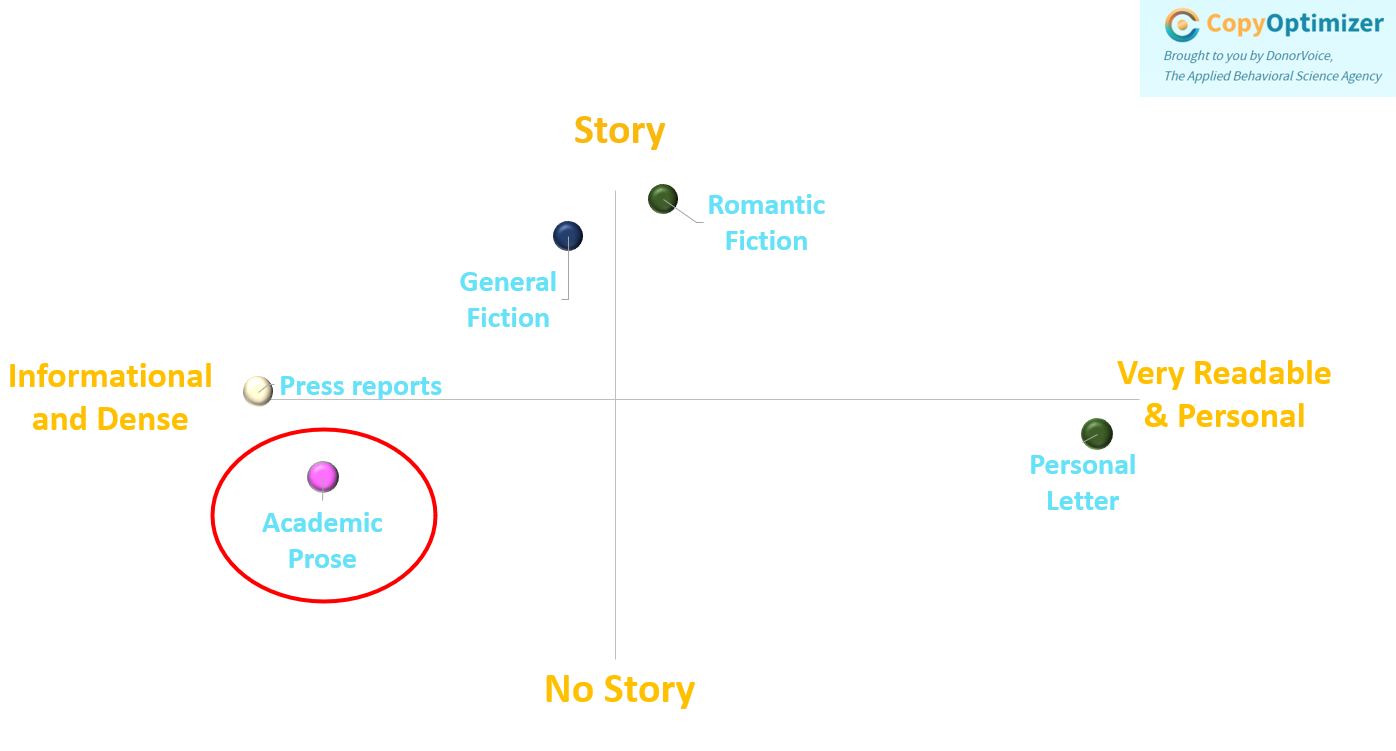Write Like An Academic?
In our world, writing like an Academic is bad. That is intuitively known and empirically proven with Copy Optimizer. You don’t want your copy sitting in the bottom left quadrant – no story and informationally dense.

As it turns out, it’s also bad for Academics to write like an Academic in Academia. A study took 30 original academic papers and 30 professionally edited versions of the same papers and had double blind peer reviews done.
The editors followed a set of guidelines aimed to make the papers easier to understand by, in part, using simple, familiar words. Sounds on point for our writing, doesn’t it?
The result? The edited papers were considered better overall, fewer mistakes, easier to find the key messages, easier to read and more concise. And more likely to be accepted by academic journals and cited by other academics.
Nobody should write like an Academic, including Academics. How can you make sure your copy isn’t reading like an Academic abstract? Use Copy Optimizer as your editor.
None of the other editor assistance tools in the market – Flesch-Kincaid, Grammerly, Hemingway, counting “you” pronouns – have any correlation with response rate. Only Story and Readability and Overall Engagement scores from Copy Optimizer are related to response rate.
And the diagnostics for most of those other tools are woeful to non-existent.
Copy Optimizer gives you the scores you need and the guidance to improve them.
Kevin



Kevin, I think you have only scratched the surface of this challenge translating academic inquiry in to usable applied testing. Our academic leadership as usual follow a peer review process about direction and leadership in our field. As you know I have invest in Indiana’s Hartsook Chair now held by John List who may be one of a few that tries to make academic results in layman terms with his field testing (application of fundraising research).
If I have learned anything, the social sciences lack field testing or if it was a pure scientific research would have gone through clinical testing before being encouraged in the field. As a former commissioner of one of the Business School Accreditation groups, peer review is under incredible questioning because it fundamentally affirms past decisions during a time when change in our society in moving at such a rapid rate it is outcomes that should be judged, not inputs.
I hope you will explore this more. What value is research if we are basing it on only Ivy Tower intellectual consideration with outside testing of its viability.